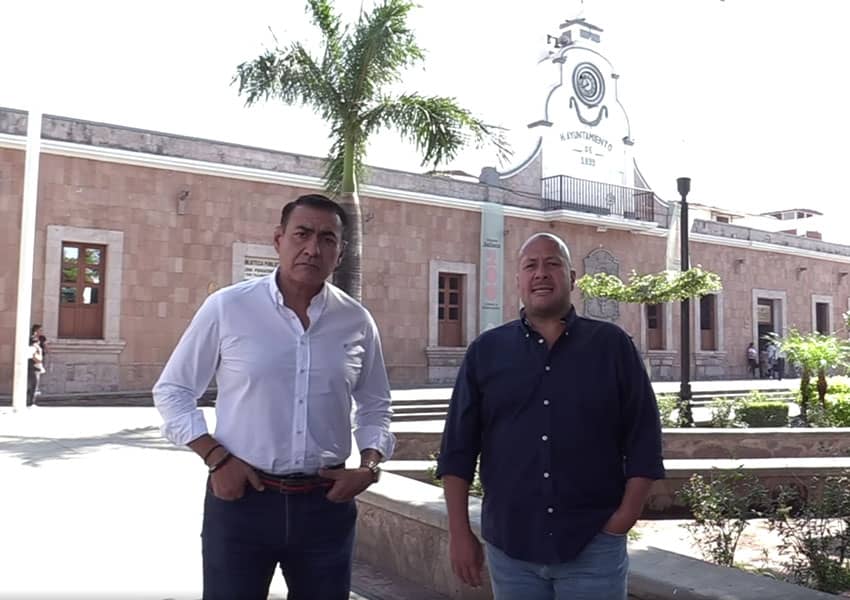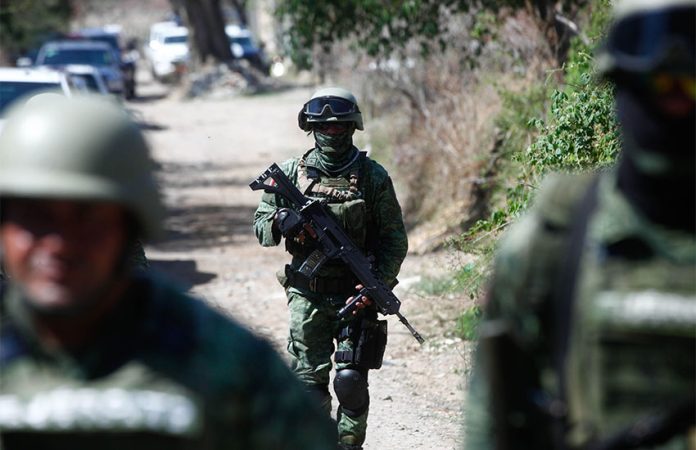Six people, including four police officers, were killed Tuesday night when seven improvised explosive devices (IEDs) detonated on a road in Tlajomulco, a municipality in the metropolitan area of Guadalajara, Jalisco.
The Jalisco government said in a statement late Wednesday afternoon that 14 people were injured in the attack, which was allegedly perpetrated by an unidentified crime group.

Three state police, one municipal officer and two civilians were killed in the blast, while two police and three children are among the injured. A police vehicle and another vehicle in which some of the victims were traveling were damaged.
Jalisco Governor Enrique Alfaro described the attack as a “brutal act of terror” and vowed to hold those responsible to account.
At a press conference on Wednesday, Alfaro gave his account of what happened before the explosion of seven of eight IEDs that had been placed on a dirt road in the Larios neighborhood of Tlajomulco.
A woman who belongs to a collective of “searching mothers” received an anonymous call from a person who told her about a place where human remains were “supposedly” located, he said.

The woman reported the information to authorities and police made their way to the location, Alfaro said.
“What happened is that it was a trap for the officers, … this [anonymous] call sought the presence of our police in order to attack them with these explosive devices,” the governor said.
“… We can’t allow these kinds of acts of terror in Jalisco. This is something else. While Jalisco is on an effective path to reduce the crime rate, these organized crime groups want to create fear, chaos and panic among the people,” said Alfaro, who was flanked by security officials including military personnel.
He also said that police-escorted searches for human remains based on anonymous tipoffs would be suspended for the time being. On social media on Tuesday night, Alfaro said the IED attack was “unprecedented” in Jalisco and demonstrates “what these organized crime groups are capable of.”
“This attack also represents a challenge to the entire Mexican state,” he wrote.
While Alfaro did not name what collective the woman was associated with, various Mexican media outlets reported that one of the most prominent collectives in the state, the Madres Buscadoras de Jalisco, had made a post on social media on Wednesday in response to the governor’s statements, calling into question Alfaro’s recounting of events and asserting that no one from their group had received such a call.
“We categorically deny that [the tragic events] have something to do with us, we deny that the people involved are part of our collective, … we never received that call … and we never go out to the field at night,” the post said.
Mexico News Daily could not independently confirm that the account on which the post was made belongs to the Madres Buscadoras de Jalisco group.
In response to the crime, state and federal authorities have beefed up the presence of security forces in Tlajomulco — where scores of bodies have been located in recent years — and other areas in the southern part of the Guadalajara metropolitan area.
Jalisco Attorney General Luis Joaquín Méndez Ruiz said Wednesday that authorities will conduct a thorough investigation to determine who is responsible for the attack.
Several organized crime groups operate in Jalisco but the dominant one is the Jalisco New Generation Cartel, which has used IEDs in the neighboring state of Michoacán as well as explosive-laden drones.
With reports from Milenio, El Universal, Expansión and El País
